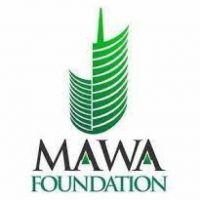The outbreak of COVID-19 brought huge impacts on communities across the world, with women bearing a huge burden while governments and their partners not paying attention to how the pandemic is affecting women.
In Nigeria, many women are struggling with the COVID-19 impacts, they are experiencing increasing food poverty, job loss, homelessness, domestic violence, divorce, children unable to access education, mental health issues, high crime rate, and child prostitution.
In Nigeria, a country with 33.3% unemployment and over 40% poverty rate together with high inequality, COVID-19 will no doubt lead to severe economic losses and heightened starvation with women being the most hit.
Therefore, since interventions in addressing COVID-19 do not pay adequate attention to the underprivileged population who are mainly children and women, with our knowledge from COVID-19 Project with support from OSIWA, we decided to discuss who will pay the price of COVID-19 in Nigeria.
Given that Nigerian women dominate the informal sector, and a prominent impact of COVID-19 is job loss, while this corroborates findings from our project on the impact of COVID-19, women are the most affected when compared to men. And, this widens the anomaly in gender inequality.
Furthermore, our finding shows COVID-19 is affecting women’s access to healthcare, a good number of women particularly in the densely populated areas no longer have access to health workers who are now afraid of giving them antenatal care and delivering them of their babies.
Our interviews and focused group discussion among the women show that virtually all of them who dominate the informal sector do not have their businesses registered while many of them cannot read, write and therefore can’t write a business proposal or fill any technical form. And, this, they said makes it difficult for them to access the government COVID-19 fund.
Many of the women, who are in the informal sector, do not have the requirements set by the government to access COVID-19 funds, asides from the corruption that often characterizes the fund disbursement. And, this is even as they need the fund for their survival.
As the Nigerian state begins to make effort in addressing the impact of COVID-19, governments at all levels, the Federal, State and Local together with their partners should design a programme in such a way, women in the informal sector do not have difficulties in access them.
Government using strategic communication must promote awareness and campaigns about COVID-19 in local languages for women to understand, and must also identify their most trusted means of communication in each of the communities and adopt it.
The COVID-19 has again shown the need for accurate data, therefore, the Nigerian state must immediately commence data capturing of women in the informal sector, and, that will make it easy and efficient for them to be assisted to survive the huge impact of COVID.
MAWA Foundation
